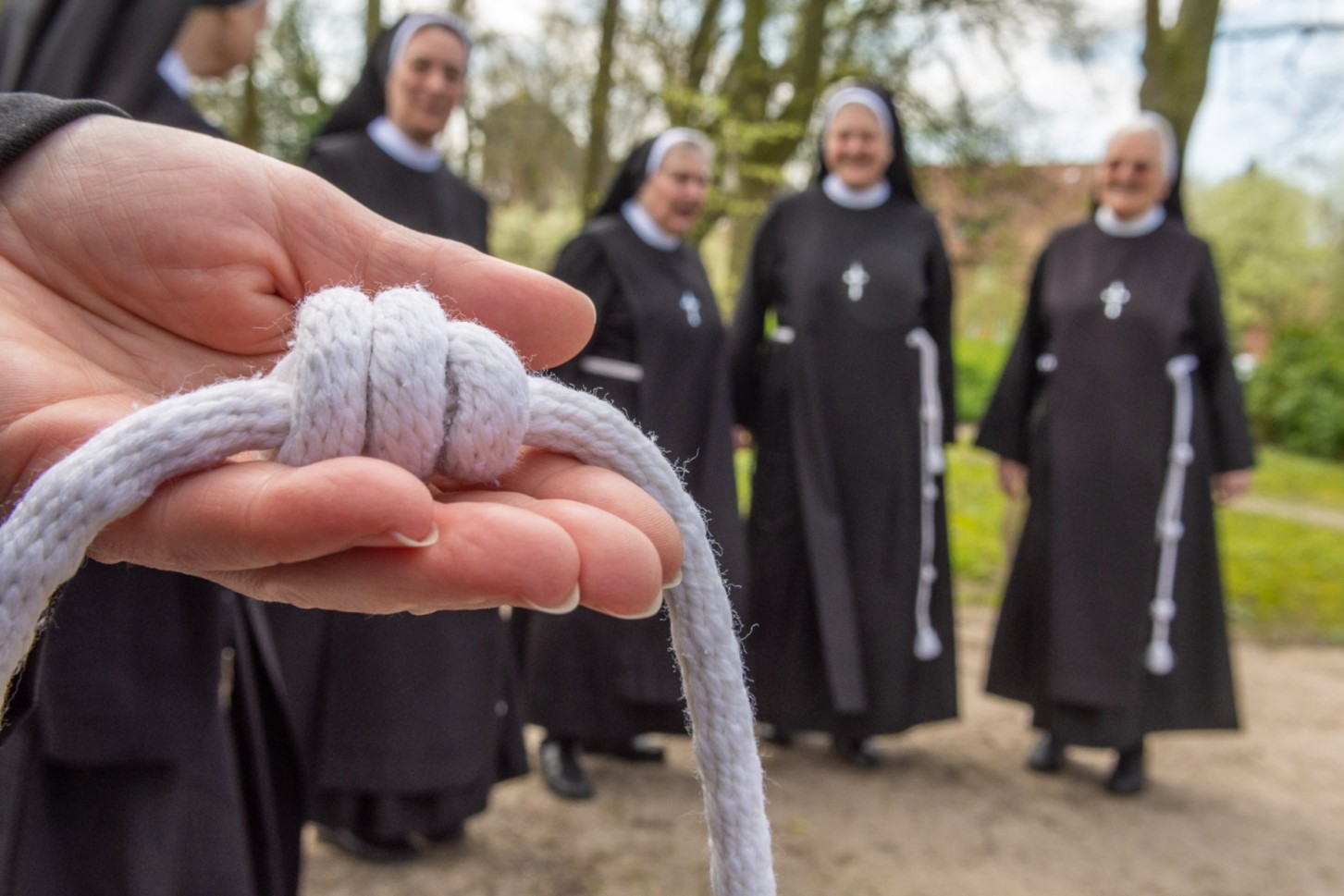
What are Evangelical Counsels? They are the vows of poverty, chastity, and obedience. Rooted in the teachings of Jesus Christ, these counsels guide Christians toward spiritual growth and perfection. Unlike commandments, they aren't mandatory but represent a higher calling. They encourage detachment from worldly goods, temperance, and submission to God's will. Historically, many religious figures embraced these principles, forming the backbone of monastic and religious life. Lay Christians also practice them in varying degrees. By living these counsels, believers aim to mirror Christ's life, making His presence visible in the world. Let's explore 20 key facts about these profound principles.
What Are Evangelical Counsels?
The evangelical counsels are principles in Christian spirituality that help believers live a life closer to Jesus Christ. They are not mandatory like commandments but are seen as a higher calling for those who seek Christian perfection.
-
Definition and Origin: The term "evangelical" comes from the Greek word "euangelion," meaning "good news" or Gospel. These counsels are rooted in the teachings and practices of Jesus Christ as recorded in the Gospels.
-
Purpose and Scope: The main goal of the evangelical counsels is to help Christians detach from worldly goods and desires, focusing on spiritual growth and eternal happiness. They are not just for religious orders but for all Christians to practice in varying degrees.
The Three Counsels
The evangelical counsels consist of three main principles: poverty, chastity, and obedience. Each one has its unique significance and application.
-
Poverty: This counsel involves detachment from worldly goods and possessions. It encourages living a simple life, renouncing riches, and focusing on spiritual wealth.
-
Chastity: Chastity is about temperance and the unity of body and soul. It involves renouncing carnal pleasures to achieve a purer, more spiritual love.
-
Obedience: This counsel means submitting to God's authority. It involves following God's will and placing it above one's own desires.
Historical Context and Scriptural Basis
Understanding the historical and scriptural roots of the evangelical counsels helps grasp their importance in Christian life.
-
Historical Context: From the early days of the Church, men and women sought to follow Christ more closely by practicing these counsels. Many became hermits or founded religious families, and the Church recognized their way of life.
-
Scriptural Basis: The evangelical counsels are deeply rooted in Jesus' teachings. For example, His call to "Follow me" (Matthew 4:19) and His life of poverty, chastity, and obedience serve as the foundation for these principles.
Theological Significance and Practice
The evangelical counsels are not just practical guidelines but hold deep theological meaning. They represent a call to live a life that mirrors Christ's.
-
Theological Significance: These counsels are a call to live a life echoing Christ's, where actions speak louder than words and serve as a witness to His presence in the world.
-
Practice by Religious: Monks and nuns take vows of poverty, chastity, and obedience, which are obligatory within their religious order. These vows represent total self-giving to God.
-
Practice by Lay Christians: Lay Christians are also called to practice these counsels in their daily lives. This means living simply, practicing temperance, and submitting to God's will.
Charism, Freedom, and Misconceptions
The evangelical counsels are often misunderstood. They are charisms, or free options, for those called by God to live them.
-
Charism and Freedom: The counsels are considered charisms, meaning they are free options for those called by God. They are not obligatory like commandments but are a higher calling.
-
Renunciation vs. Acceptance: These counsels are often seen as renunciations of natural desires. However, they are actually an acceptance of Christ's mystery, dedicating one's life to God and others.
Specific Applications in Priestly Life
For priests, the evangelical counsels hold specific applications that guide their ministry and personal life.
-
Obedience in Priestly Life: For priests, obedience involves listening to and surrendering to God's will. This obedience is a sharing in Jesus' obedient listening to the Father.
-
Poverty in Priestly Life: Priestly poverty involves treating natural and cultural gifts in ways that transcend self-centered tendencies. It recognizes all goods as gifts from God.
-
Chastity in Priestly Life: Chastity for priests involves a chaste and respectful love, essential for their ministry. It leads to a deeper union with God.
The Church's Role and Virtues
The Church plays a crucial role in promoting and living out the evangelical counsels. They are closely related to the theological virtues of faith, hope, and charity.
-
The Church's Role: The Church offers a unifying vision of Christian life rooted in liturgy, word, and sacrament. Priests refine their sensitivity to divine meanings through obedient listening and appreciative responses.
-
Concurrence with Virtues: The evangelical counsels are closely related to the virtues of faith, hope, and charity. They help grow these virtues, leading to a more assured attainment of eternal bliss.
Historical Documents and Practical Application
Historical documents and practical applications provide a deeper understanding of the evangelical counsels.
-
Historical Documents: Documents like the Catechism of the Catholic Church and writings of St. Thomas Aquinas emphasize the importance of the evangelical counsels. The Catechism states that Christ proposes these counsels to every disciple.
-
Practical Application: Practicing the evangelical counsels involves daily choices and actions. For example, a priest might choose a simple lifestyle and prioritize spiritual growth over worldly desires.
Witness to Christ and Modern Recognition
Living the evangelical counsels serves as a witness to Christ in the world. Modern recognition of their importance continues to grow.
- Witness to Christ: The evangelical counsels serve as a witness to Christ. When Christians live these counsels, they make Him visible to others through their actions.
The Heart of Evangelical Counsels
Evangelical counsels—poverty, chastity, and obedience—offer a path to deeper spiritual growth. Rooted in Jesus' teachings, these principles guide Christians toward a life focused on God rather than worldly desires. While religious individuals take formal vows, lay Christians can also embrace these counsels in daily life. They serve as a witness to Christ's presence, emphasizing detachment, temperance, and submission to God's will. The Church supports this journey, providing a framework through liturgy, word, and sacrament. By living these counsels, Christians echo Christ's life, contributing to the Church's mission. Whether you're a priest, nun, or layperson, practicing these counsels can lead to a more fulfilling, spiritually rich life. They aren't just rules but a way to live more like Jesus, making His love visible in the world.
Was this page helpful?
Our commitment to delivering trustworthy and engaging content is at the heart of what we do. Each fact on our site is contributed by real users like you, bringing a wealth of diverse insights and information. To ensure the highest standards of accuracy and reliability, our dedicated editors meticulously review each submission. This process guarantees that the facts we share are not only fascinating but also credible. Trust in our commitment to quality and authenticity as you explore and learn with us.


